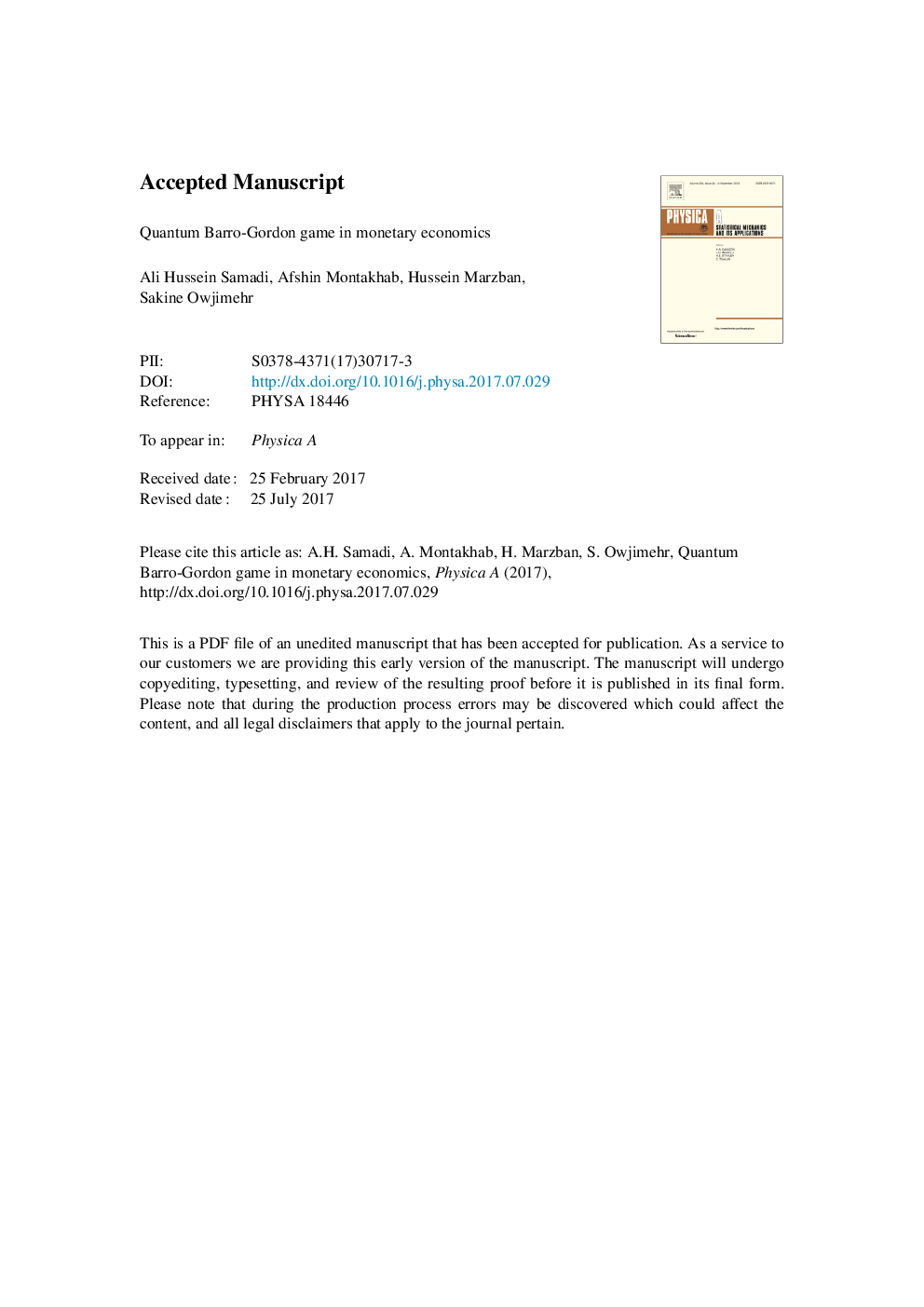| Article ID | Journal | Published Year | Pages | File Type |
|---|---|---|---|---|
| 5102658 | Physica A: Statistical Mechanics and its Applications | 2018 | 17 Pages |
Abstract
Classical game theory addresses decision problems in multi-agent environment where one rational agent's decision affects other agents' payoffs. Game theory has widespread application in economic, social and biological sciences. In recent years quantum versions of classical games have been proposed and studied. In this paper, we consider a quantum version of the classical Barro-Gordon game which captures the problem of time inconsistency in monetary economics. Such time inconsistency refers to the temptation of weak policy maker to implement high inflation when the public expects low inflation. The inconsistency arises when the public punishes the weak policy maker in the next cycle. We first present a quantum version of the Barro-Gordon game. Next, we show that in a particular case of the quantum game, time-consistent Nash equilibrium could be achieved when public expects low inflation, thus resolving the game.
Keywords
Related Topics
Physical Sciences and Engineering
Mathematics
Mathematical Physics
Authors
Ali Hussein Samadi, Afshin Montakhab, Hussein Marzban, Sakine Owjimehr,
